
Peleliu Island: A Tranquil Paradise with a Storied Past
Peleliu Island, nestled in the Pacific Ocean, is part of the island nation of Palau. This small island is known for its serene beauty and significant World War II history. As you arrive, you are greeted by pristine beaches, crystal-clear waters, and lush greenery. The island's natural charm offers a perfect escape from the hustle and bustle of modern life. Peleliu is a haven for history enthusiasts. The island was the site of a fierce battle during World War II, and remnants of this past are still visible today. You can explore old tanks, planes, and battle sites, providing a glimpse into the island's dramatic history. The Peleliu Peace Memorial Park is a poignant reminder of the island's wartime past and a place for reflection. For nature lovers, Peleliu offers vibrant coral reefs teeming with marine life. Snorkeling and diving in the surrounding waters reveal colorful fish, sea turtles, and stunning underwater landscapes. The island's untouched beauty and biodiversity make it a paradise for eco-tourists and adventurers alike. Whether you're seeking relaxation or exploration, Peleliu Island promises a unique and unforgettable experience.
Local tips in Peleliu Island
- Visit the Peleliu Peace Memorial Park to understand the island's wartime history.
- Bring snorkeling or diving gear to explore the vibrant coral reefs.
- Respect the historical sites and relics; they are important parts of the island’s heritage.
- Hire a local guide to get insightful information and stories about the island.
- Pack reef-safe sunscreen to protect the delicate marine ecosystems.
Peleliu Island: A Tranquil Paradise with a Storied Past
Peleliu Island, nestled in the Pacific Ocean, is part of the island nation of Palau. This small island is known for its serene beauty and significant World War II history. As you arrive, you are greeted by pristine beaches, crystal-clear waters, and lush greenery. The island's natural charm offers a perfect escape from the hustle and bustle of modern life. Peleliu is a haven for history enthusiasts. The island was the site of a fierce battle during World War II, and remnants of this past are still visible today. You can explore old tanks, planes, and battle sites, providing a glimpse into the island's dramatic history. The Peleliu Peace Memorial Park is a poignant reminder of the island's wartime past and a place for reflection. For nature lovers, Peleliu offers vibrant coral reefs teeming with marine life. Snorkeling and diving in the surrounding waters reveal colorful fish, sea turtles, and stunning underwater landscapes. The island's untouched beauty and biodiversity make it a paradise for eco-tourists and adventurers alike. Whether you're seeking relaxation or exploration, Peleliu Island promises a unique and unforgettable experience.
When is the best time to go to Peleliu Island?
Iconic landmarks you can’t miss
Peleliu Peace Memorial Park
Explore Peleliu Peace Memorial Park, a serene tribute to valor and resilience amid breathtaking views of nature and history.
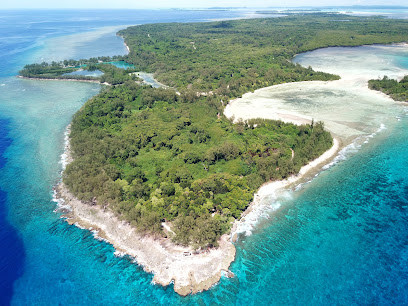
Peleliu World War II Memorial Museum
Explore the rich history of the Peleliu World War II Memorial Museum, where artifacts and stories bring the past to life on this historic island.
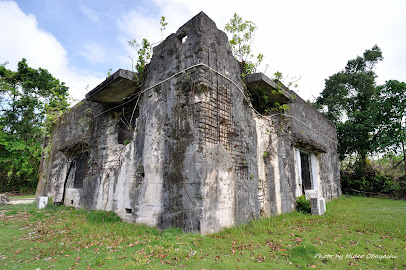
81st Infantry Division Memorial
Explore the 81st Infantry Division Memorial in Peleliu, Palau, a significant historical landmark honoring the courage of World War II soldiers amidst stunning natural beauty.
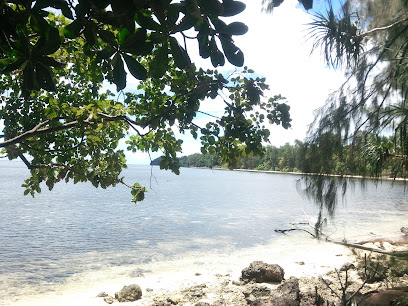
US Army 323rd Infantry Memorial
Explore the US Army 323rd Infantry Memorial in Peleliu, a solemn tribute to the bravery of soldiers and a significant historical landmark in World War II.
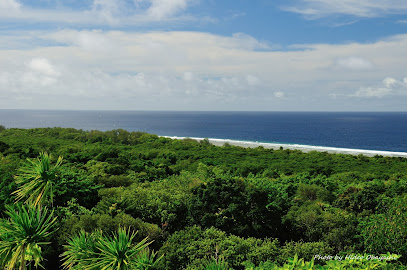
Japanese Type 95 Ha-Go Tank
Visit the Japanese Type 95 Ha-Go Tank in Peleliu, Palau, a historic relic from World War II that showcases the region's military heritage and offers captivating insights into the past.
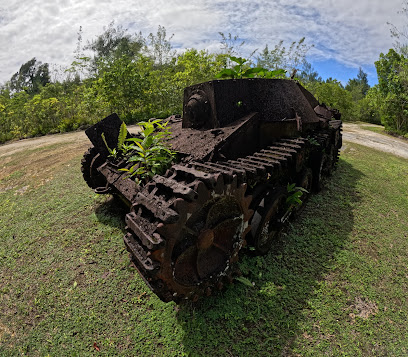
American LVT and Japanese Cannon
Explore the American LVT and Japanese Cannon Museum in Peleliu, where compelling World War II history comes alive through unique artifacts and insightful exhibits.
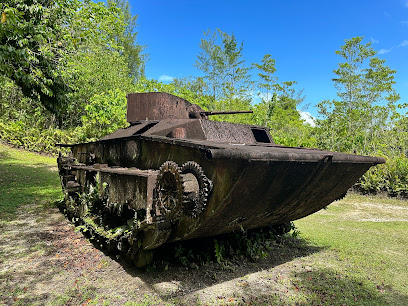
Peliliu US Military Monument
Explore the Peliliu US Military Monument: A serene memorial park honoring the sacrifices of WWII heroes amidst the natural beauty of Peleliu, Palau.
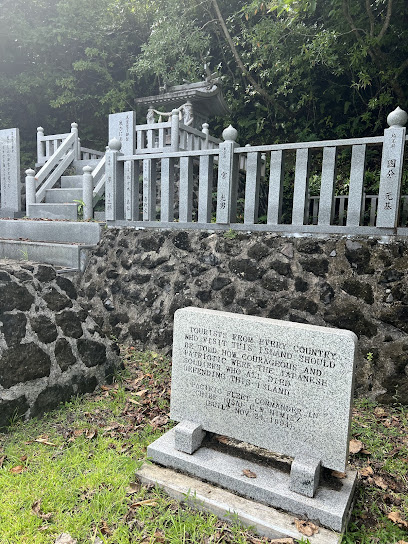
1,000 Man Cave
Discover the historical significance of the 1,000 Man Cave in Peleliu, a unique museum that reveals the island's World War II past amidst stunning natural beauty.
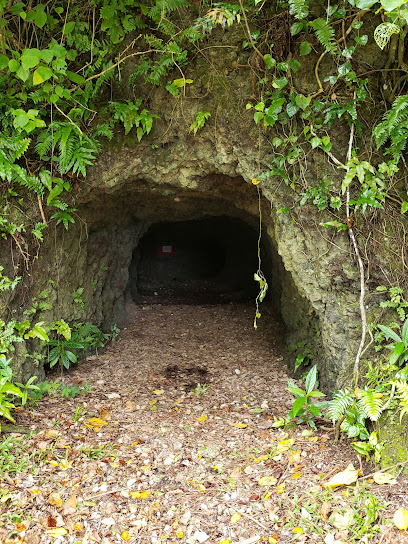
Japanese Pillbox
Discover the Japanese Pillbox in Peleliu, a historical landmark that tells the story of World War II and showcases the natural beauty of Palau.
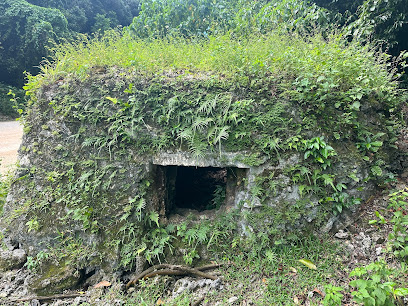
Japanese White Beach Enfilading Bunker
Explore the historical depths of the Japanese White Beach Enfilading Bunker in Peleliu, Palau, where history meets stunning natural beauty.
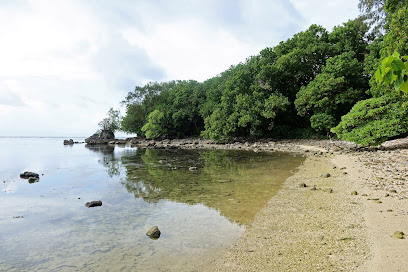
Unmissable attractions to see
Long Island Park
Explore the lush landscapes and tranquil beauty of Long Island Park, a must-visit destination in Koror, Palau for nature lovers and adventurers.
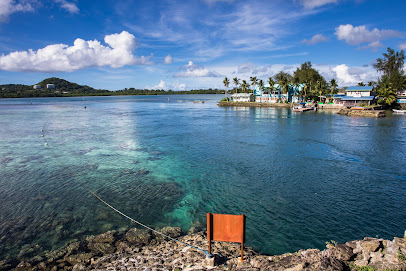
Airai Bai
Explore the serene beauty and rich biodiversity of Airai Bai, a captivating tourist attraction in the heart of Palau's breathtaking landscapes.
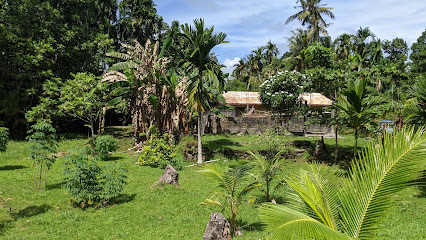
Peleliu World War II Memorial Museum
Discover the profound history of the Battle of Peleliu at the Peleliu World War II Memorial Museum in Palau, a tribute to valor and sacrifice.
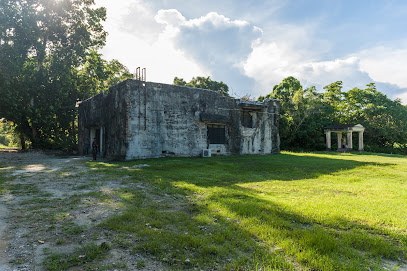
Ulong Channel Dive Spot
Explore the vibrant underwater world of Ulong Channel Dive Spot in Palau, a paradise for divers and marine life enthusiasts.
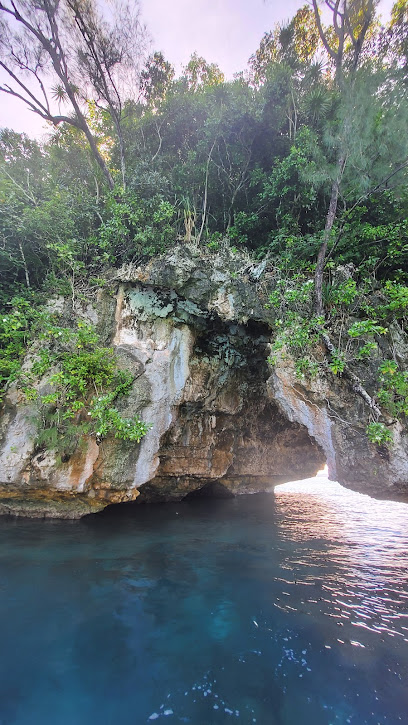
Chandelier Cave
Explore the breathtaking Chandelier Cave in Palau, a natural wonder with stunning limestone formations and vibrant biodiversity.
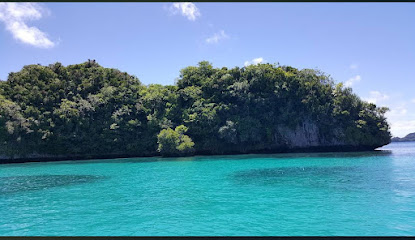
おじさんアイランド
Explore Palau, a tropical paradise with crystal-clear waters, rich marine life, and vibrant culture – a must-visit destination for nature lovers and adventure seekers.
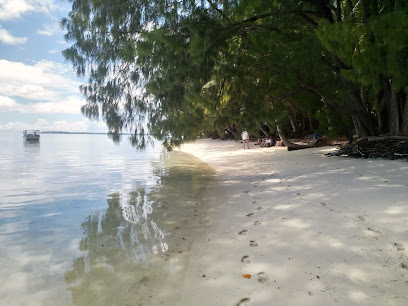
Zero fighter
Explore the Zero Fighter in Palau, a historical site that unveils the legacy of World War II aviation amidst stunning natural beauty.
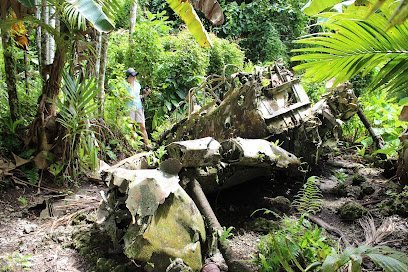
Camp Beck Dock
Explore the stunning views and rich history at Camp Beck Dock in Peleliu, Palau, a serene park perfect for relaxation and reflection.
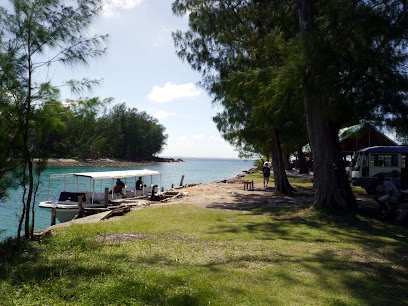
American LVT and Japanese Cannon
Discover the historical significance of the Pacific theater at the American LVT and Japanese Cannon Museum in Peleliu, Palau.
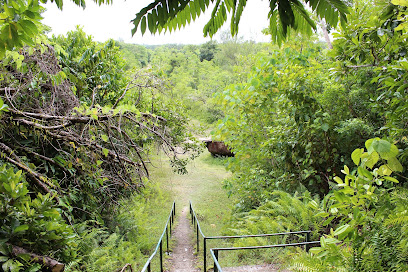
Peliliu US Military Monument
Discover the Peliliu US Military Monument, a serene memorial park honoring the sacrifices of World War II soldiers amidst the breathtaking landscapes of Peleliu.
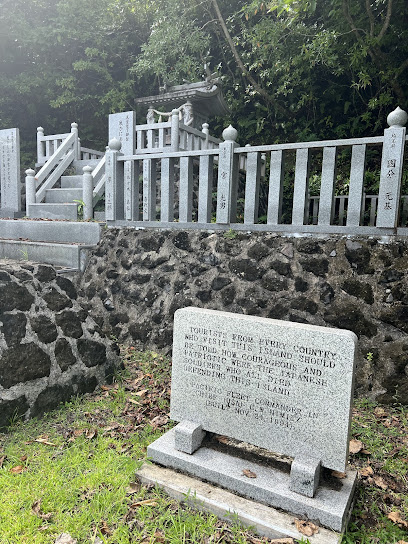
Shark City
Discover the breathtaking underwater world of Shark City in Palau, a haven for divers and snorkelers seeking thrilling marine adventures.
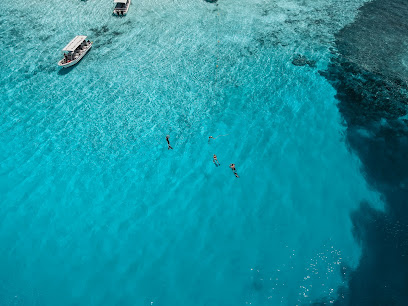
Kambek
Explore Kambek Park in Peleliu – a peaceful haven in Palau, perfect for nature lovers and history enthusiasts seeking tranquility and beauty.
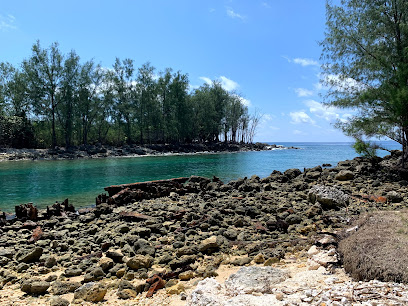
Orenge Beach
Experience the serene beauty of Orenge Beach in Palau, where crystal-clear waters and soft sands create a perfect tropical escape.
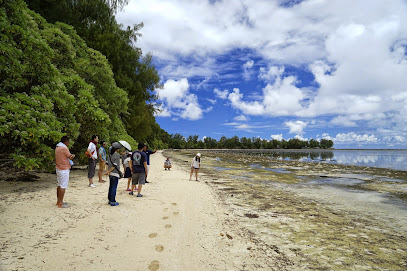
Jellyfish Lake Entry Point
Experience the unique Jellyfish Lake in Palau, where you can swim with thousands of harmless jellyfish in a stunning natural setting.
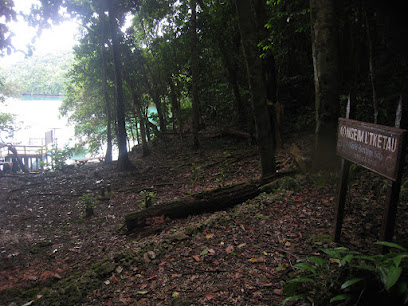
Ngerbekall
Experience the tranquility and natural beauty of Ngerbekall Park in Peleliu, Palau, where lush landscapes and serene surroundings await.
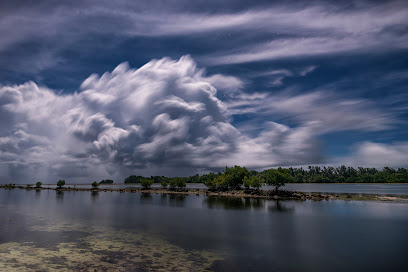
Markets, malls and hidden boutiques
Surangel and Sons Co. - Koror
Discover the vibrant shopping experience at Surangel and Sons Co. in Koror, where local culture meets modern retail in a charming atmosphere.
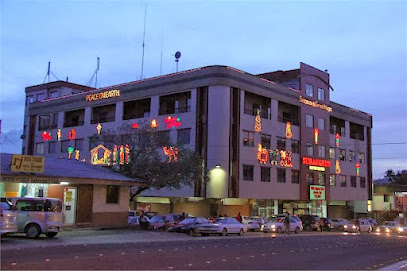
Peleliu Peace Memorial Park
Explore the serene Peleliu Peace Memorial Park, a historical tribute to the Battle of Peleliu, surrounded by breathtaking natural beauty.
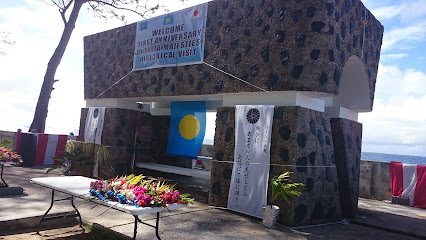
Rur Gift Shop & Cafe
Explore the vibrant culture of Palau at Rur Gift Shop & Cafe, where unique souvenirs and local flavors await every visitor.
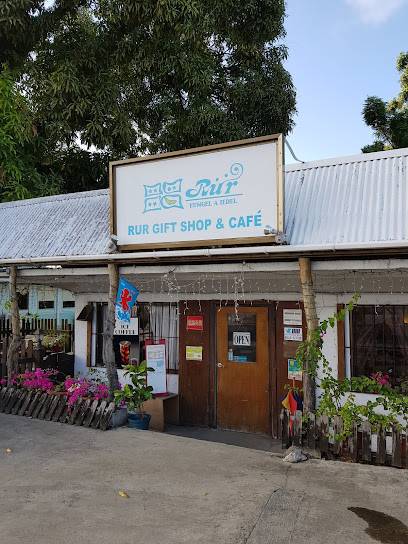
Ben Franklin Department Store
Discover unique treasures at Ben Franklin Department Store, your go-to shopping destination in Medalaii, Palau, for souvenirs, clothing, and local crafts.
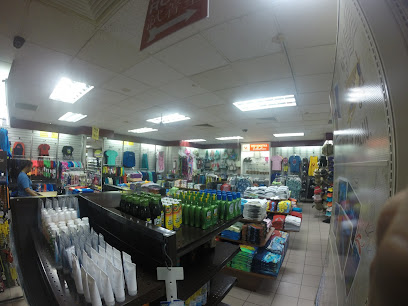
EXILE
Discover the vibrant styles of Palauan culture at EXILE, a must-visit clothing store in Koror, offering unique fashion for every occasion.
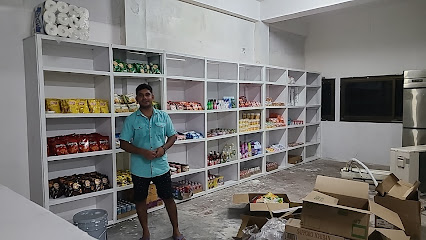
Amel Store
Discover the essence of Palauan cuisine and essentials at Amel Store, your friendly grocery destination in Ngerulmud.
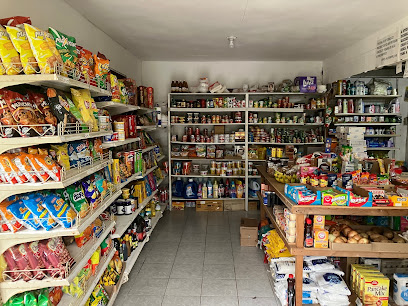
Globus Palau
Discover unique home goods and local artistry at Globus Palau, where Palauan culture meets modern shopping.
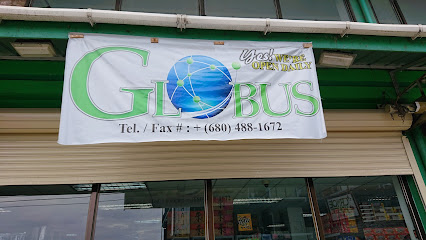
Lius Gift Shop
Explore Lius Gift Shop in Koror, Palau, for unique souvenirs, local delicacies, and fashionable accessories that capture the spirit of the island.
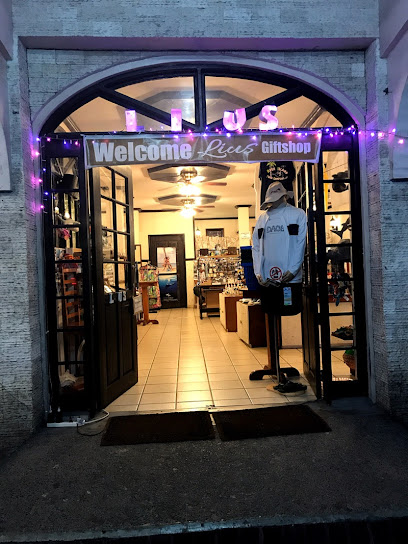
Palau Central Trading Co.
Explore the vibrant Palau Central Trading Co., a unique gift shop in Koror showcasing local art, gourmet groceries, and authentic Palauan souvenirs.
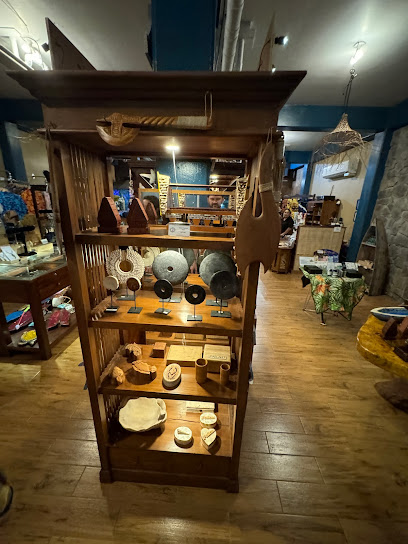
Jello's Fashion II
Discover Jello's Fashion II, your go-to convenience store in Koror, Palau, for drinks, snacks, and clothing at unbeatable prices!

Capital Seaside Store
Discover the essence of Palauan culture at Capital Seaside Store, your go-to spot for unique local crafts and souvenirs in Melekeok.
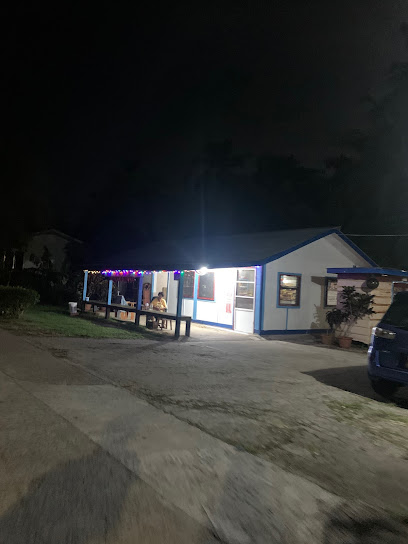
Hanpa Mart
Experience authentic Korean flavors at Hanpa Mart in Koror, Palau, where culinary tradition meets local charm.
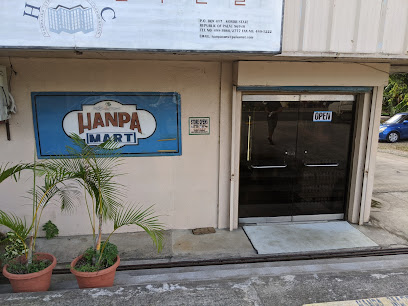
sinceshorelyyours
Explore Angaur's unique handcrafted jewelry at Since Shorely Yours, where artistry meets the spirit of Palau's vibrant culture.
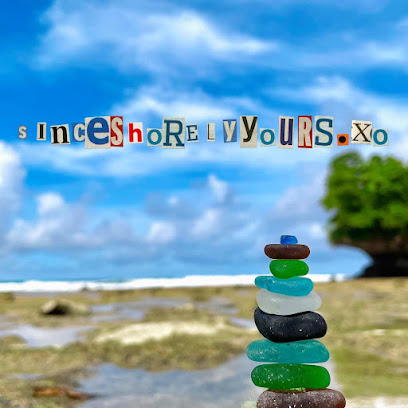
NEW MARKET STORE
Explore the vibrant flavors of Koror at New Market Store, where local and international grocery selections await every traveler.
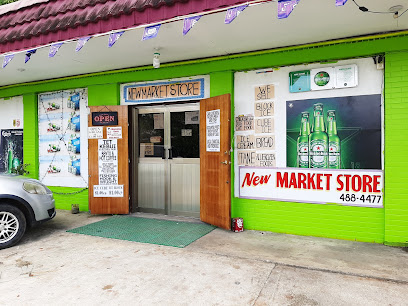
1,000 Man Cave
Explore the 1,000 Man Cave in Peleliu, a museum that reveals the island's WWII history and cultural significance through its fascinating artifacts and stories.
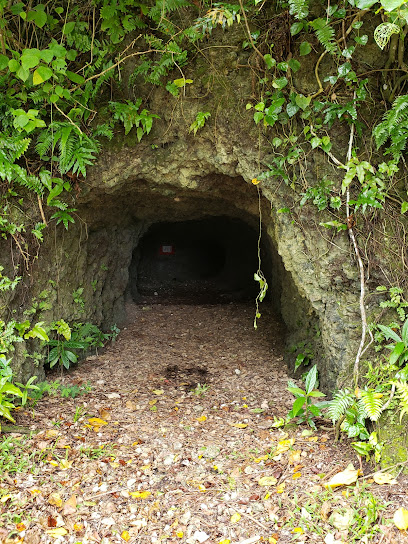
Essential bars & hidden hideouts
Drop Off Bar and Grill
Discover the vibrant flavors and stunning views at Drop Off Bar and Grill, a top seaside restaurant in Koror, Palau, perfect for an unforgettable dining experience.
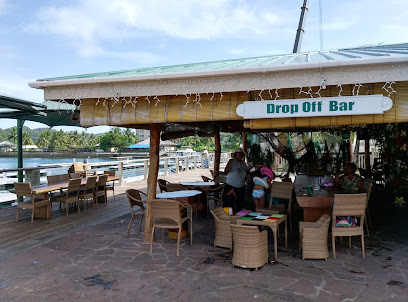
The Canoe House
Experience the lively spirit of Palau at The Canoe House, where delicious food meets vibrant nightlife and live music.
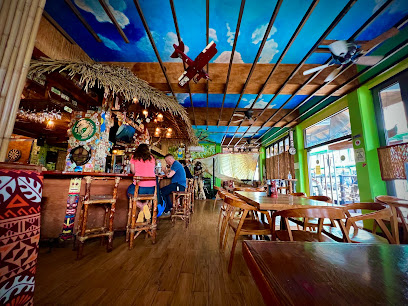
Red Rooster Cafe
Discover the vibrant culinary scene at Red Rooster Cafe in Koror, Palau, where local flavors meet friendly hospitality.
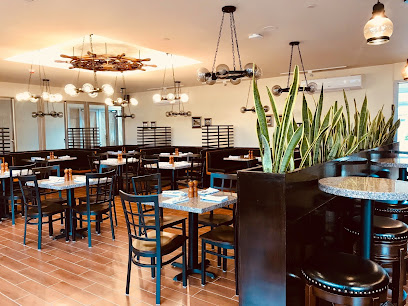
Krämer’s Bar and Restaurant
Experience the authentic flavors of Palau at Krämer’s Bar and Restaurant, where every dish is a celebration of local ingredients and culinary artistry.
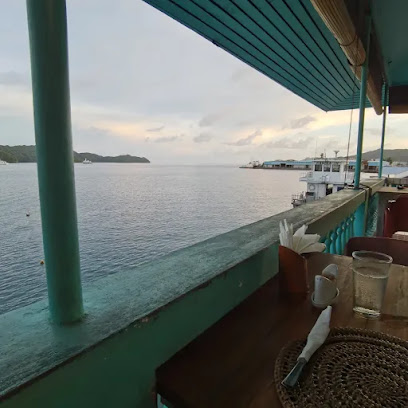
Riptide Beach Bar & Grill
Discover the vibrant flavors and stunning views at Riptide Beach Bar & Grill in Koror, Palau – your tropical retreat for unforgettable dining experiences.
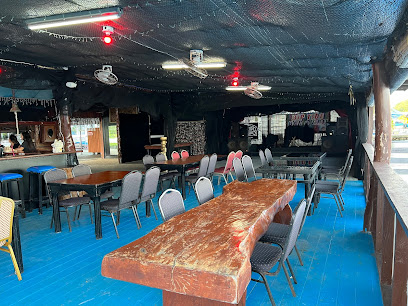
Barracuda Restaurant
Experience the best seafood in Koror, Palau at Barracuda Restaurant, where local flavors meet a vibrant atmosphere.
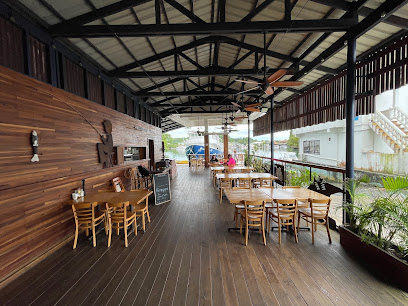
Hungry Marlin Restaurant & Bar at COVE Resort Palau
Experience the vibrant flavors of Palau at Hungry Marlin Restaurant & Bar, where fresh seafood meets stunning ocean views.
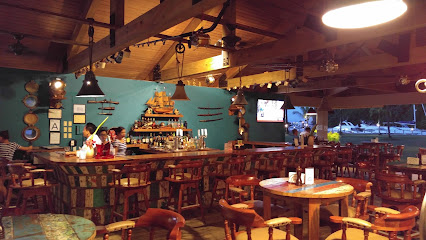
Manta Restaurant
Experience the flavors of Palau at Manta Restaurant, where fresh seafood meets breathtaking island views in a warm, welcoming atmosphere.
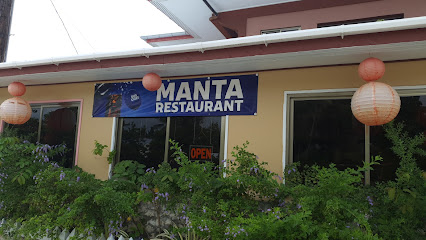
Bottom Time Bar and Grill
Experience the flavors of Palau at Bottom Time Bar and Grill, where local cuisine meets tropical paradise in Koror.
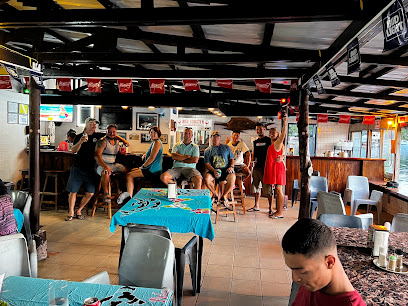
Jungle Bar
Experience the serene ambiance and delightful flavors of Jungle Bar, a tropical dining retreat in the heart of Koror, Palau.
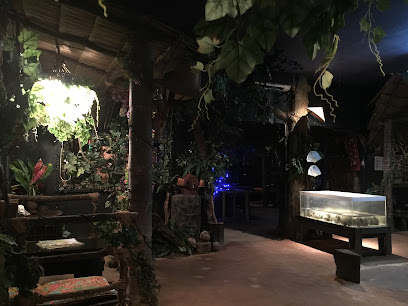
Weltz Bar at the Palasia Hotel
Experience the serene ambiance and delightful beverages at Weltz Bar, the perfect retreat in Koror, Palau's stunning Palasia Hotel.
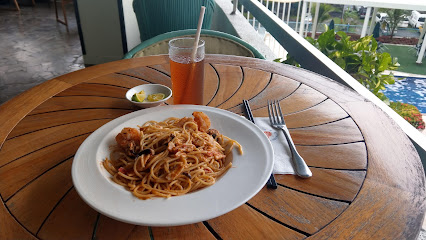
Island Terrace
Discover the serene comforts of Island Terrace, a tranquil hotel in Peleliu, offering a perfect escape and a gateway to adventure.
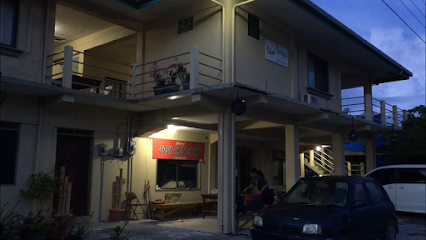
1,000 Man Cave
Explore the 1,000 Man Cave in Peleliu, Palau, a museum that reveals the island's incredible wartime history and captivating stories.
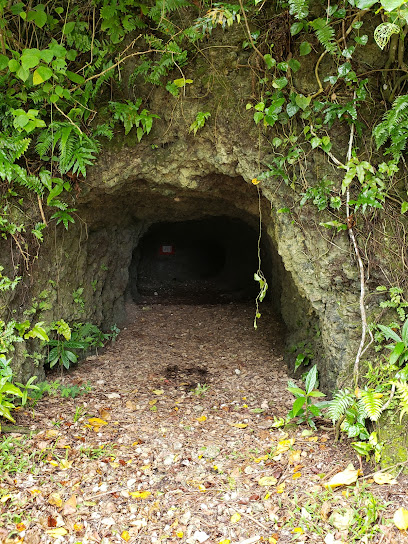
The Republic Restaurant & Bar
Experience a delightful fusion of local and international flavors at The Republic Restaurant & Bar in Koror, Palau—where vibrant atmosphere meets culinary excellence.

Local Phrases about Peleliu Island
-
- HelloAlii
[ah-lee] - GoodbyeKo ulterakl
[koh ul-te-ra-kel] - YesOngalek
[ong-ah-lek] - NoCheral
[cher-al] - Please/You're welcomeKmal mesaul
[kem-mal me-sow-ul] - Thank youSulang
[soo-lang] - Excuse me/SorryChais
[chais] - How are you?Kemam a kmal mesaul?
[kem-am ah kem-mal me-sow-ul] - Fine. And you?Mochochel. A kemam?
[mo-cho-chel. ah kem-am] - Do you speak English?Mlomesaul a ngii a rengalek?
[mlo-me-sow-ul ah ngii ah ren-gah-lek] - I don't understandA re ngak a diak el kmo
[ah re-ngak ah dee-ak el kmo]
- HelloAlii
-
- I'd like to see the menu, pleaseA chelid a mla ngar er ngii a mengetmeklek, kemam
[ah chel-id ah mla ngar er ngii ah men-get-mek-lek kem-am] - I don't eat meatA re ngak a diak el meringel
[ah re-ngak ah dee-ak el mer-in-gel] - Cheers!Ungil tutau
[ung-gil tu-tow] - I would like to pay, pleaseA chelid a ngar er ngii a dengerengerir, kemam
[ah chel-id ah ngar er ngii ah den-ger-en-ger-ir kem-am]
- I'd like to see the menu, pleaseA chelid a mla ngar er ngii a mengetmeklek, kemam
-
- Help!Kmal meringel!
[kem-mal mer-in-gel] - Go away!Diak lebo lmuut
[dee-ak le-bo l-moot] - Call the Police!Kmal meringel a rulud
[kem-mal mer-in-gel ah roo-lud] - Call a doctor!Kmal meringel a doktor
[kem-mal mer-in-gel ah dok-tor] - I'm lostA re ngak a diak el kilie
[ah re-ngak ah dee-ak el kee-lee] - I'm illA re ngak a diak el kliou
[ah re-ngak ah dee-ak el klee-ow]
- Help!Kmal meringel!
-
- I'd like to buy...A chelid a mla ngar er ngii...
[ah chel-id ah mla ngar er ngii] - I'm just lookingA re ngak a udoud el kmo
[ah re-ngak ah oo-dowd el kmo] - How much is it?Kmal meringel?
[kem-mal mer-in-gel] - That's too expensiveA chad er a rengul a diak el kirel
[ah chad er ah ren-gul ah dee-ak el kee-rel] - Can you lower the price?Menguiu el kirel?
[men-gwee-oo el kee-rel]
- I'd like to buy...A chelid a mla ngar er ngii...
-
- What time is it?Kmal meringel a rengul?
[kem-mal mer-in-gel ah ren-gul] - It's one o'clockOmelekoi a klengar er a klok
[oh-mel-ek-oy ah klen-gar er ah klok] - Half past (10)Mei a klengar er a tuchel a turok
[may ah klen-gar er ah too-chel ah too-rok] - MorningNgalek a klengar
[ngah-lek ah klen-gar] - AfternoonNgalek a klengar er a ilet
[ngah-lek ah klen-gar er ah ee-let] - EveningNgalek a klengar er a rurtel
[ngah-lek ah klen-gar er ah roor-tel] - YesterdayA klengar er a chad
[ah klen-gar er ah chad] - TodayA klengar er a eanged
[ah klen-gar er ah ee-ang-ed] - TomorrowA klengar er a rurt
[ah klen-gar er ah roort] - 1Rechad
[re-chad] - 2Riik
[ree-ik] - 3Telu
[teh-loo] - 4Ruu
[roo] - 5Ngoru
[ngoh-roo] - 6Ono
[oh-no] - 7Ilau
[ee-lau] - 8Delu
[deh-loo] - 9Sanga
[sang-gah] - 10Rang
[rang]
- What time is it?Kmal meringel a rengul?
-
- Where's a/the...?Ng diak el mo er ngii a/the...?
[ng dee-ak el moh er ngii ah/the] - What's the address?Kmal meringel a delul a rael?
[kem-mal mer-in-gel ah deh-lool ah rah-el] - Can you show me (on the map)?Menguiu el kmo ng diak el mo er ngii (er a map)?
[men-gwee-oo el kmo ng dee-ak el moh er ngii er ah map] - When's the next (bus)?Kmal meringel a rengul er a tiket?
[kem-mal mer-in-gel ah ren-gul er ah tee-ket] - A ticket (to ....)A tiket er a...
[ah tee-ket er ah]
- Where's a/the...?Ng diak el mo er ngii a/the...?
History of Peleliu Island
-
Peleliu Island, part of the Palau archipelago, has been inhabited for thousands of years. The ancient Palauan society was well-known for its unique cultural and social structures, which included matrilineal clans and a complex system of chiefs. Traditional customs such as bai (meeting houses) and stone pathways still echo the island's rich cultural heritage.
-
The first recorded European contact with Peleliu Island occurred in the 18th century when Spanish explorers arrived. The island, like much of Palau, was later claimed by Spain as part of its colonial empire. However, Spanish influence on the local culture was limited, and the island remained largely isolated from European intervention.
-
In 1899, following the Spanish-American War, Spain sold Peleliu and the rest of Palau to Germany. German administration focused on economic development, including the introduction of phosphate mining. After World War I, the Treaty of Versailles transferred control of the island to Japan, which continued to develop the island's infrastructure and economy.
-
One of the most significant historical events on Peleliu Island was the Battle of Peleliu, which took place during World War II from September to November 1944. This intense and brutal conflict between U.S. forces and the Japanese Imperial Army resulted in heavy casualties on both sides. The battle was part of the larger U.S. campaign to retake the Philippines and secure the Pacific theater. Today, remnants of this battle, such as military artifacts and war memorials, can be found across the island.
-
After World War II, Peleliu, along with the rest of Palau, became part of the United Nations Trust Territory of the Pacific Islands, administered by the United States. This period saw various economic and social changes, including the introduction of modern education and healthcare systems. The island also began to see more interaction with the outside world, paving the way for future development.
-
Peleliu, as part of the Republic of Palau, gained full independence on October 1, 1994. Today, the island is a significant historical and cultural site, attracting visitors interested in its rich history and natural beauty. The local community continues to preserve traditional practices while embracing modernity, making Peleliu a unique blend of the past and present.
Peleliu Island Essentials
-
Peleliu Island is located in the island nation of Palau in the western Pacific Ocean. The nearest international airport is Roman Tmetuchl International Airport in Koror, Palau. From Koror, you can take a domestic flight or a boat to Peleliu Island. Domestic flights are operated by Airai Airport and typically take about 30 minutes. Alternatively, boat services are available, which offer a scenic and leisurely route but take around 1.5 to 2 hours.
-
Once on Peleliu Island, transportation options are limited but sufficient for the island's small size. Bicycles and scooters are available for rent, providing a convenient way to explore the island. For those who prefer guided tours, there are local operators offering transport via small buses or vans. Walking is also a viable option as many of the island’s attractions are within a short distance of each other.
-
The official currency in Palau is the United States Dollar (USD). Credit cards are accepted in some hotels, restaurants, and shops, but it is advisable to carry cash, especially for smaller establishments and local markets. There are limited ATMs on the island, so ensure you withdraw sufficient cash before arriving on Peleliu.
-
Peleliu Island is generally a very safe destination for tourists. Crime rates are low, and violent crime is rare. However, like any travel destination, it is wise to take standard precautions: avoid walking alone at night in isolated areas and keep an eye on your belongings in crowded places. There are no specific high-crime areas targeting tourists on the island.
-
In case of emergency, dial 911 for immediate assistance. The island has a small medical clinic that can handle minor health issues. For more serious medical emergencies, evacuation to Koror or international facilities may be necessary. Ensure you have travel insurance that covers medical emergencies and evacuation. Familiarize yourself with the location of the nearest police station and the medical clinic upon arrival.
-
Fashion: Do dress modestly, especially when visiting religious or cultural sites. Avoid wearing overly revealing clothing. Religion: Do respect local customs and traditions. Always ask for permission before entering religious sites. Public Transport: Do be respectful and courteous when using local transport services. Don’t be loud or disruptive. Greetings: Do greet people with a friendly smile or a simple hello. Shaking hands is also acceptable. Eating & Drinking: Do try local dishes and accept food offerings graciously. Don’t refuse hospitality, as it is considered impolite.
-
To experience Peleliu Island like a local, visit the island's historical sites such as the Peleliu Battlefield, where you can learn about the island's significant role in World War II. Engage with local guides who can provide insightful stories and historical context. Participate in local festivals or events if your visit coincides with them. Try traditional Palauan dishes, such as taro, coconut milk-based dishes, and fresh seafood. Respect the natural environment, especially the pristine beaches and marine life, by adhering to conservation guidelines.
Trending Landmarks in Peleliu Island
Nearby Cities to Peleliu Island
-
Things To Do in Koror
-
Things To Do in Airai
-
Things To Do in Ngatpang
-
Things To Do in Ngchesar
-
Things To Do in Ngaremlengui
-
Things To Do in Melekeok
-
Things To Do in Ngerulmud
-
Things To Do in Ngardmau
-
Things To Do in Ngaraard
-
Things To Do in Yap
-
Things To Do in Davao City
-
Things To Do in Siargao
-
Things To Do in Cagayan de Oro
-
Things To Do in Camiguin
-
Things To Do in Bohol









